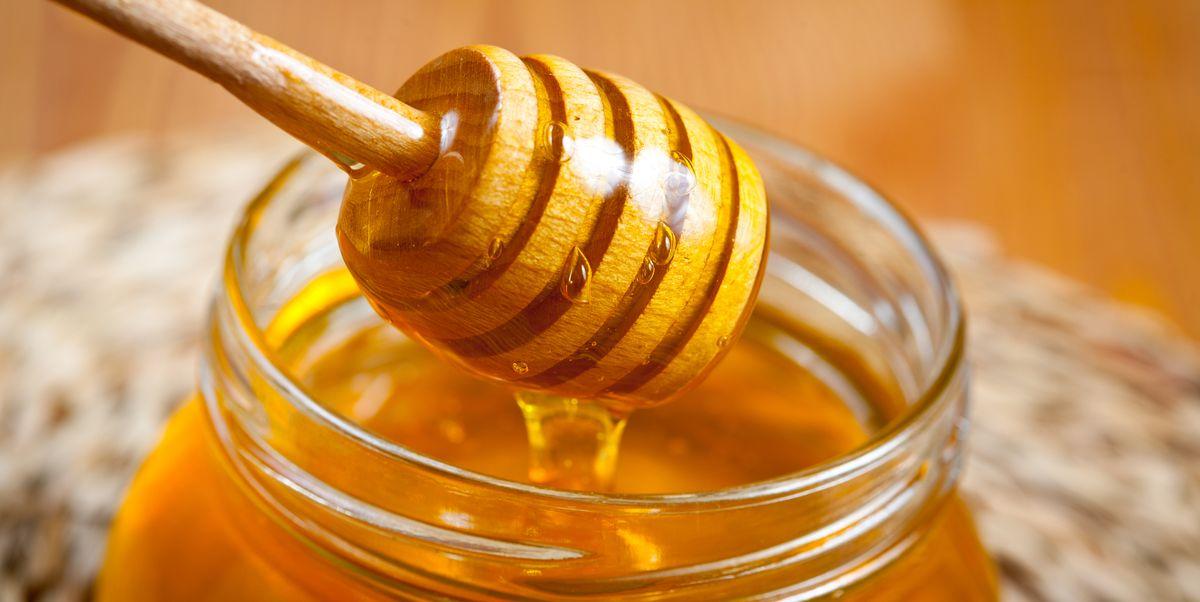Unique Health Advantages of Honey: The syrupy liquid that honeybees produce from plant nectar is called honey. It is used in various dishes and meals since people all over the world adore its sweetness and depth of flavor.
There are innumerable variations of honey available, each with a distinct flavor, color, and aroma depending on the type of flower used in production.
Honey is used in many DIY cures and alternative medical procedures since it may have a lot of health benefits.
Here are 5 special health advantages of honey.
1. Health Advantages of Honey | Includes a range of nutrients
One tablespoon (20 grams) of honey contains
- Calories: 61
- Fat: 0 grams
- Protein: 0 grams
- Carbs: 17 grams
- Fiber: 0 grams
- Riboflavin: 1% of the Daily Value (DV)
- Copper: 1% of the DV
Honey is primarily just sugar; it has no fat and very little protein or fiber. Although most individuals don’t generally consume enough honey for it to be a significant dietary source of vitamins and minerals, it does contain trace levels of several elements.
It’s nevertheless important to note that honey contains a lot of polyphenols, and plant components that are proven to promote health.
Honey is mostly made up of sugar, but it also contains small amounts of a number of vitamins, minerals, and plant chemicals that are good for your health.
2. Health Advantages of Honey | Rich in antioxidants
Flavonoids and phenolic acids are just a couple of the significant bioactive plant chemicals and antioxidants found in high-grade honey, which is little processed, unheated, and fresh. More antioxidants are often present in darker kinds than in lighter ones.
Reactive oxygen species (ROS), which can accumulate in your body and harm cells, are countered by antioxidants. Conditions including type 2 diabetes, heart disease, and premature aging can all be made worse by this injury.
As a result, honey’s antioxidant concentration is thought to be responsible for many of its health advantages.
Several antioxidants, including phenolic acids and flavonoids, can be found in honey.
3. Health Advantages of Honey | Compared to regular sugar, better for blood sugar levels
Honey may have a modest advantage over ordinary sugar in terms of controlling blood sugar.
Honey has the same blood sugar-raising effects as other forms of sugar, but its antioxidant content may help prevent metabolic syndrome and type 2 diabetes.
Adiponectin is a hormone that lowers inflammation and enhances blood sugar management, and studies have revealed that honey may raise levels of this hormone.
There is some evidence that those with type 2 diabetes who consume honey every day may have better fasting blood sugar levels.
Honey should still be consumed in moderation even though it might be somewhat better for persons with diabetes than refined sugar.
It’s also crucial to be aware that some honey varieties may benefit from dilution with simple syrup. Although most nations forbid it, honey adulteration is still a major issue.
Although honey may have some protective benefits for controlling blood sugar, it should still be used in moderation, especially by those with type 2 diabetes.
4. Health Advantages of Honey | May improve heart health
Honey might also aid with heart disease prevention.
One study found that honey may lower blood pressure, enhance blood fat levels, regulate heartbeat, and stop the death of healthy cells—all of which can enhance the health and function of your heart.
One observational trial with over 4,500 participants over the age of 40 linked moderate honey consumption to a decreased risk of high blood pressure in women.
Additionally, a promising rat study found that honey protected the heart from oxidative stress.
Additionally, propolis, a type of resin produced by bees from plants and trees that generate sap, is frequently found in raw honey. Levels of triglycerides and cholesterol may be improved with propolis.
There are no extensive human studies on honey and heart health at this time. For a deeper understanding of how honey affects heart health, more research is required.
Reduced blood pressure and blood lipid levels are only two of the heart health benefits of honey. Still, more study of humans is required in this area.
5. Health Advantages of Honey | Helps the healing of burns and wounds
Since ancient Egypt, topical honey treatments have been used to cure burns and wounds. The custom is still widespread today.
According to a review of 26 studies on the topic of honey and wound care, partial-thickness burns and surgical wounds that have developed an infection respond well to its use.
Diabetes-related foot ulcers, a dangerous condition that can result in amputation, can be effectively treated with honey.
One study found that using honey as a wound treatment had a success rate of 43.3% in patients with diabetes-related foot ulcers. In another trial, topical honey effectively treated 97 percent of patients’ ulcers caused by their diabetes.
According to research, honey’s antibacterial and anti-inflammatory properties are what give it its therapeutic properties.
Additionally, it might aid in the treatment of herpes lesions and other skin disorders including psoriasis.
Burns is regarded as being particularly responsive to manuka honey treatment. However, you should get medical help right away if you have a serious burn.
Honey can be used topically to effectively heal burns, wounds, and a variety of other skin diseases. It works particularly well for foot ulcers brought on by diabetes.
—END—
Also Visit 9 Gold Ayurveda, Ninetak & 9tak |






